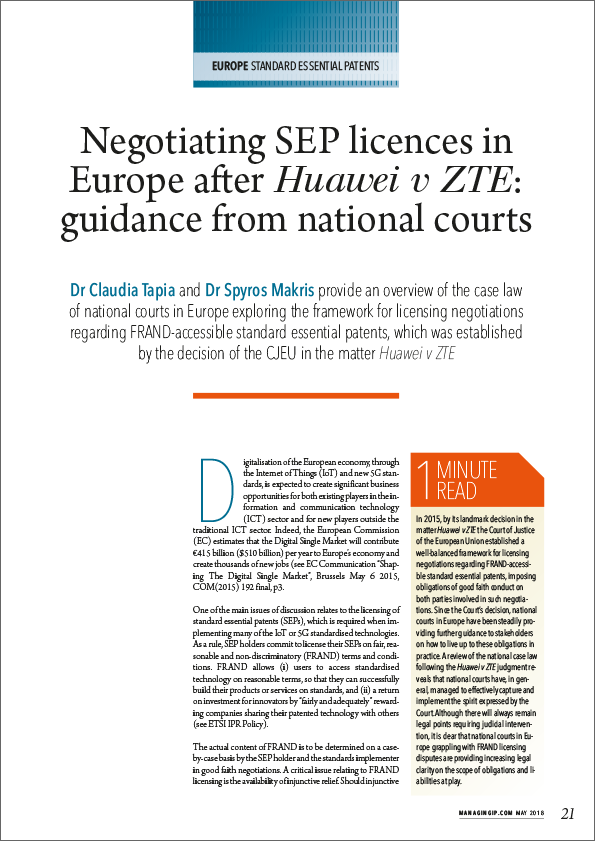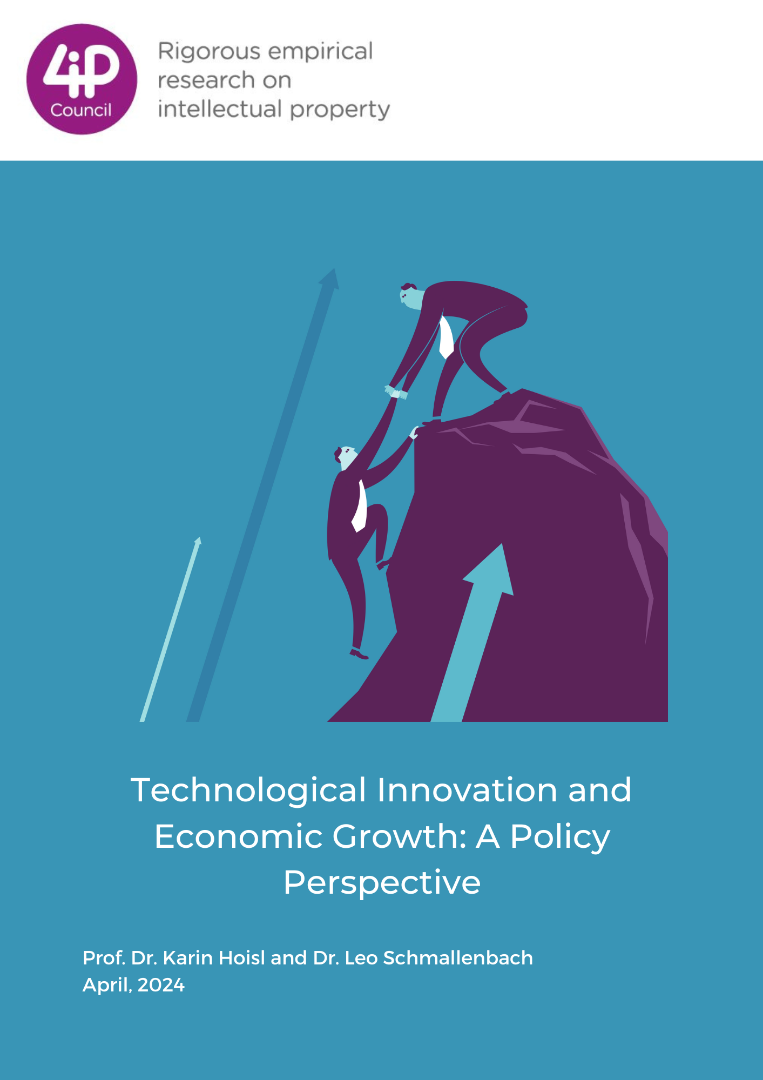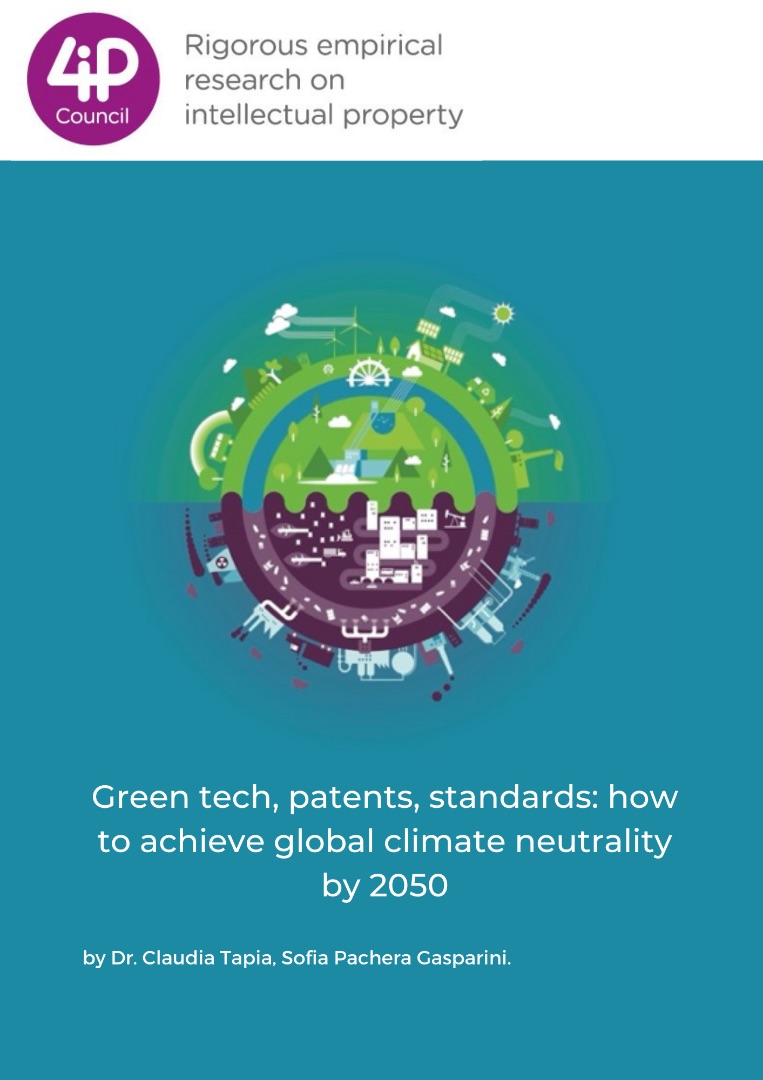Digitalisation of the European economy, through the Internet of Things (IoT) and new 5G standards,
is expected to create significant business opportunities for both existing players in the information and communication technology (ICT) sector and for new players outside the traditional ICT sector. Indeed, the European Commission (EC) estimates that the Digital Single Market will contribute €415 billion ($510 billion) per year to Europe’s economy and create thousands of new jobs (see EC Communication “Shaping The Digital Single Market”, Brussels May 6 2015, COM(2015) 192 final, p3. One of the main issues of discussion relates to the licensing of standard essential patents (SEPs), which is required when implementing
many of the IoT or 5G standardised technologies. As a rule, SEP holders commit to license their SEPs on fair, reasonable and non-discriminatory (FRAND) terms and conditions. FRAND allows (i) users to access standardised technology on reasonable terms, so that they can successfully build their products or services on standards, and (ii) a return on investment for innovators by “fairly and adequately” rewarding companies sharing their patented technology with others (see ETSI IPR Policy). The actual content of FRAND is to be determined on a case- by-case basis by the SEP holder and the standards implementer in good faith negotiations. A critical issue relating to FRAND licensing is the availability of injunctive relief.
EUROPE STANDARD ESSENTIAL PATENTS
In 2015, by its landmark decision in the matter Huawei v ZTE the Court of Justice of the European Union established a well-balanced framework for licensing negotiations regarding FRAND-accessible standard essential patents, imposing obligations of good faith conduct on both parties involved in such negotiations.
Since the Court’s decision, national courts in Europe have been steadily providing further guidance to stakeholders on how to live up to these obligations in practice. A review of the national case law
following the Huawei v ZTE judgment reveals that national courts have, in general, managed to effectively capture and implement the spirit expressed by the Court. Although there will always remain legal points requiring judicial intervention, it is clear that national courts in Europe grappling with FRAND licensing
disputes are providing increasing legal clarity on the scope of obligations and liabilities at play.
This article by Dr Claudia Tapia and Dr Spyros Makris first appeared in Managing Intellectual Property's May 2018 issue. It looks at how national courts in Europe are interpreting the CJEU guidance after Huawei v ZTE. The CJEU provided a legal framework focused on the good faith conduct to be expected of both parties. Since the Court’s decision in 2015, national courts have been steadily exploring the scope of these obligations, providing further clarity on what is or is not to be considered appropriate behaviour.







